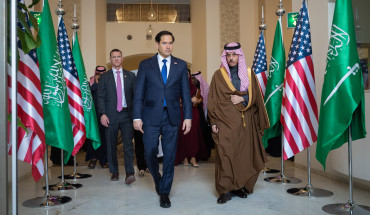Following the U.S. invasion of Iraq in 2003 and the toppling of Saddam Hussein, Iraq’s new leadership prioritized a return to the Arab fold. To do that, they recognized that building a relationship with Saudi Arabia was essential to the success of their effort. But their outreach to the Saudi leadership was firmly rejected, as Riyadh convinced itself that the new leaders in Baghdad were inextricably linked to the Iranian regime. Despite pleas from Saudi Arabia’s closest friends and partners, and even from its own foreign policy advisors, the Saudi leadership remained committed to its hard line on Baghdad. The result, in the end, was pushing a reluctant Maliki government to the very embrace of Tehran that the Saudis feared.
In A Self-Fulfilling Prophecy, Kitty Harvey revisits Saudi decision-making in the first decade of the 21st century on Iraq and shows how King Abdullah’s conviction that the new Iraqi government was of necessity beholden to Tehran. But she then builds on that analysis as a jumping off point to a contemplation of how perceptions often shape decisions and how self-perpetuating images of others often veer dangerously to become self-fulfilling prophecies.
Speaker:
Kitty Harvey
Author, A Self-Fulfilling Prophecy
Amb. Gerald M. Feierstein, moderator
Senior VP, MEI












